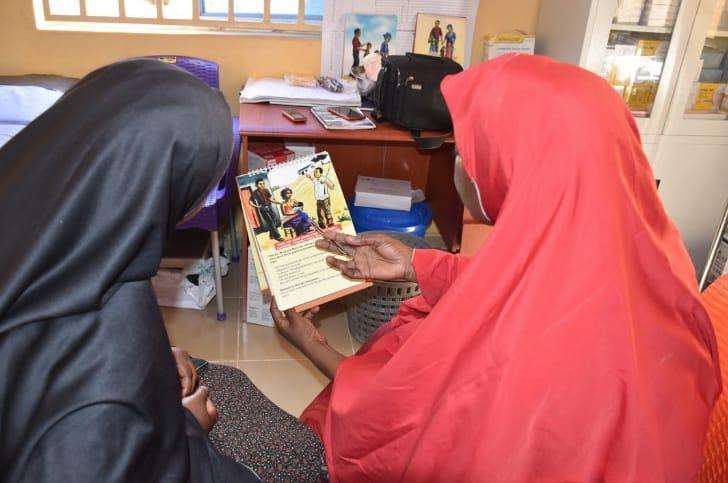Family planning and reproductive health continue to be controversial topics in many regions of the world. But the road to family planning is sometimes paved with stigma and condemnation for young Muslim women, especially in orthodox communities.
Many Muslim females who think about utilizing family planning techniques find it challenging to exercise agency over their reproductive health due to the complicated interplay of social influences, religious teachings, and cultural expectations.
It is evident from conversations with young Muslim women that the stigma associated with using family planning has its roots in traditional beliefs and is exacerbated by a lack of knowledge and misunderstandings regarding Islamic teachings on reproductive health.
The fear of social repercussions often leaves many young Muslim women in a dilemma: torn between the desire to make personal choices about their bodies and the pressure to conform to societal expectations.
This story explores their challenges, the views of a sheikh on this sensitive topic, and the medical perspective on the importance of family planning for women’s health.
The Personal Struggles of Young Muslim Women
Hadiya (not her real name), a 24-year-old college student from Nairobi, shares her experience:
“I wanted to start using birth control because my fiancé and I were getting closer, and I wanted to be safe. But in our community, even talking about birth control as an unmarried woman is scandalous. I’m afraid of what people will think of me if they find out.”
For Hadiya, family planning isn't about promiscuity or challenging her faith; rather, it’s a step toward taking responsibility for her health and future.
However, she feels trapped by the cultural stigma attached to this decision.
Similarly, Amina (not her real name), a 28-year-old working mother of one, explains the pressure she faced when she decided to use contraceptives after giving birth to her child.
“When I went to the health centre, I remember the nurse asking me if my husband approved. She assumed that I was doing something wrong by wanting to take control of my reproductive health,” Amina said.
“For Muslim women, there is this constant expectation that any family planning decision should be approved by a man either a father or husband. It’s exhausting.”
These accounts reflect a broader issue faced by many Muslim girls and women in Kenya.
In many traditional settings, women who choose to use family planning are viewed as challenging the natural role of women as mothers or, even worse, accused of deviating from Islamic teachings.
Young Muslim women are not only pressured to avoid family planning, but some are also judged harshly for simply discussing it.
This deeply embedded cultural stigma leaves many women to navigate their reproductive health in secrecy, often without support or proper guidance.
Cultural and Religious Misconceptions
Zeinab Ahmed, a social worker specializing in Muslim communities, notes that much of the stigma surrounding family planning in Muslim societies comes from a misunderstanding of religious teachings.
“Islam doesn’t explicitly prohibit family planning, but due to historical and cultural influences, there has been a longstanding belief that using contraceptives is sinful,” she explains.
“This belief has become so ingrained that it often overrides more nuanced interpretations of Islamic law, which can be supportive of family planning under certain circumstances.”
This misconception is particularly challenging for young women who struggle to reconcile their faith with their personal health needs.
Mariam (not her real name), a 23-year-old woman, recalls the backlash she faced from her extended family when she openly discussed using birth control after marriage.
“My aunt told me that preventing children was like going against God’s will. But what about my health and my career? I want children, but not before I’m ready. Unfortunately, even some of my friends criticized me for this decision, as if wanting to control my body is wrong.”
The lack of open conversations about family planning within Muslim communities often means that young women rely on misinformation or face confusion regarding religious perspectives.
For instance, many girls mistakenly believe that all forms of birth control are haram (forbidden) in Islam. As a result, they feel guilt or shame for even considering family planning options, further exacerbating the stigma and limiting their choices.
The Religious Perspective
To address the misconceptions surrounding family planning, we spoke with Sheikh Abdullah Omar, a prominent Islamic scholar who frequently addresses youth on issues of faith and lifestyle.
Sheikh Abdullah clarifies that Islam does not categorically prohibit family planning.
“There are many misunderstandings within our communities. The Quran and Hadith do not explicitly forbid family planning, and many scholars agree that contraceptives can be used for legitimate reasons, such as health concerns or financial stability,” said Abdullah.
Sheikh Abdullah points out that Islam, at its core, emphasizes compassion, intention, and the well-being of the family.
“If a woman’s health is at risk, or if the family cannot financially support more children, using family planning methods is permissible," he says.
"It is not a sin for a woman to take care of herself. However, she must consult her husband, as Islam promotes mutual decision-making within the family.”
He acknowledges, however, that not all Muslim communities are open to these views. “Cultural traditions often overshadow religious teachings, creating a barrier between Islamic knowledge and personal choices, “stated Abdullah.
“Many Muslim women feel trapped because of these cultural pressures, which can be very damaging to their mental and physical well-being. We must create a safe environment for women to seek advice and make informed choices.”
Sheikh Abdullah’s insights challenge the rigid cultural norms that label family planning as an act of disobedience.
He advocates for more discussions within Muslim communities about the real teachings of Islam regarding reproductive health and emphasizes the importance of trust and mutual respect in marriage, which he believes can help reduce the stigma surrounding family planning.
The health perspective, why family planning matters
Dr Gloria, an experienced gynaecologist, shares insights on her work with Muslim women seeking family planning services.
Over the years, she has observed a gradual increase in the uptake of contraception among Muslim women, though uptake remains lower than ideal.
“More women are becoming knowledgeable, thanks to education, internet access, and social media. These platforms have positively influenced family planning awareness,” she explains.
Despite this progress, cultural and religious beliefs often shape attitudes toward contraception.
“One common belief is that Allah gives children, and women should bear as many as possible. This is tied to cultural norms that view a woman’s primary mission as bearing and raising children, which earns them respect in society,” Dr. Gloria says.
Misconceptions such as family planning causing infertility, cancer, or disruptions to menstrual cycles further deter uptake.
“Some women even fear that intrauterine devices (IUDs) could ‘get lost’ in their reproductive tract,” she adds.
Family and community influences play a significant role in these decisions.
Family and community influences play a significant role in these decisions.
Dr Gloria highlights the patriarchal nature of Muslim societies, where men often hold decision-making power.
“If a husband does not support family planning, women are unlikely to pursue it. Secret use of contraception can even lead to relational problems,” she notes.
The stigma surrounding family planning is another major barrier.
“The more children a man has, the more respect he earns in society. Since women bear this burden, family planning is often frowned upon. Women are also hesitant to use methods that disrupt their monthly cycles, adding another layer of resistance,” Dr. Gloria added.
However, education could be a game-changer.
“Engaging religious institutions, mainstream media, and schools in family planning education is crucial. Younger women, who are often better educated and more career-focused, are more open to these conversations compared to older generations,” she says.
Dr. Gloria believes male involvement is critical.
“If men understand and support family planning, the stigma can be significantly reduced,” she emphasizes.
Addressing stigma is not just about education; it’s about understanding cultural sensitivities and creating tailored solutions.
“Many pregnancies without spacing strain a woman physically, emotionally, and financially. This impacts not just the mother’s health but the entire family’s well-being,” she explains.
Dr Gloria calls for empathy, stakeholder education, and active male participation to foster an environment where women can make informed choices about their reproductive health.
“Family planning is not just a women’s issue—it’s a community issue that requires collective effort and understanding,” she concludes
Need for an open dialogue
Addressing the stigma surrounding family planning in Muslim communities requires open dialogue and a shift in cultural perspectives.
For many Muslim girls and women, family planning represents an opportunity to take control of their futures, but they must navigate the social repercussions of exercising this right.
As Hadiya reflects, “It’s a choice that belongs to me, but I don’t want to feel like I’m doing something wrong just because I want to be safe.”








.svg)


